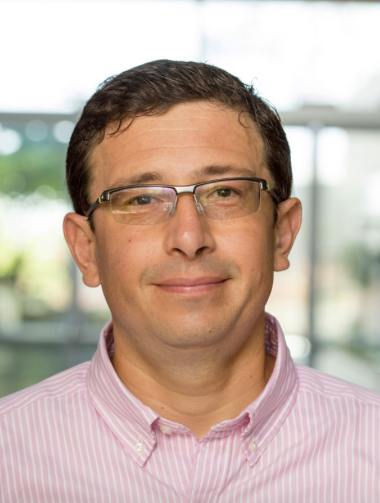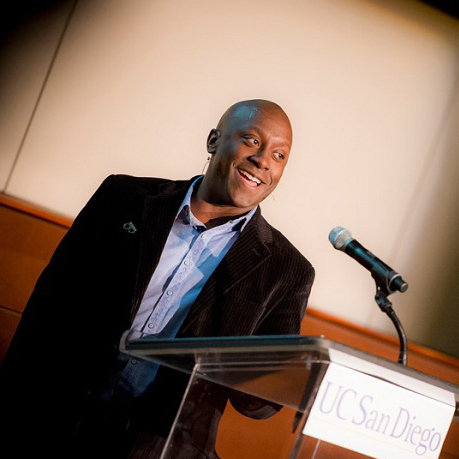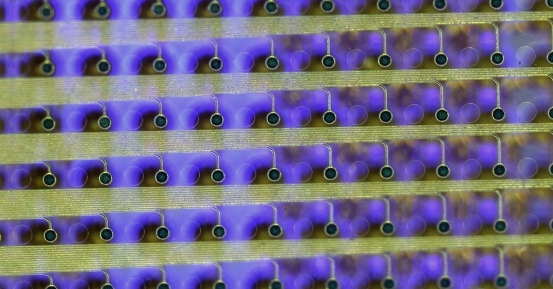
UC San Diego Researchers Inducted to Renowned Medical and Biological Engineering Organization
By:
- Ioana Patringenaru
Media Contact:
- Ioana Patringenaru - ipatrin@ucsd.edu
- Liezel Labios - llabios@ucsd.edu
- Heather Buschman - hbuschman@ucsd.edu
Published Date
By:
- Ioana Patringenaru
Share This:
Article Content
Three researchers at the University of California, San Diego were inducted into the College of Fellows of the American Institute for Medical and Biological Engineering (AIMBE), the organization announced. Professors Pedro Cabrales and Todd Coleman from the Department of Bioengineering and Jin Zhang from the UC San Diego School of Medicine were recognized during a ceremony at the National Academy of Sciences Great Hall in Washington, DC, on March 25.
The College of Fellows is comprised of the top two percent of medical and biological engineers in the country, including the most accomplished and distinguished engineering and medical school chairs, research directors, professors, innovators and successful entrepreneurs.
AIMBE Fellows are recognized for their contributions in teaching, research and innovation. Fellows have been awarded the Presidential Medal of Science and the Presidential Medal of Technology and Innovation and many also are members of the National Academy of Engineering, National Academy of Medicine and the National Academy of Sciences.

Pedro Cabrales
Pedro Cabrales is being recognized for fundamental contributions to measuring, understanding and modifying microvascular gas transport and physiology in health and disease. Cabrales leads the Functional Cardiovascular Engineering Laboratory at UC San Diego that aims discover and analyze the underlying fundamental regulatory processes in the cardiovascular systems. His research aims to understand oxygen delivery and its regulation in both acute and chronic cardiovascular disease, including anemia, brain traumatic injury, sepsis, cancer, obesity and diabetes. His laboratory has contributed to the development and evaluation of various oxygen transporters based on hemoglobin and fluorocarbons as alternatives to blood in transfusion medicine. Cabrales also has helped develop a program to create healthy eating habits for school children in Mexico, called “Good Manners for a Healthy Future.” The program is now implemented in several Mexican states.

Todd Coleman
Todd Coleman is being recognized for outstanding contributions to physiologic signal processing, scalable manufacturing methods for flexible bioelectronics, and neuroengineering education. Coleman’s Neural Interaction Lab pursues several research goals. Most recently, Coleman and colleagues have been working on innovative approaches to non-invasively monitor electrical activity of the digestive system. Applications include identifying the causes of symptoms to optimize treatments for patients with GI disorders. Researchers also are developing algorithms to monitor sleep in clinical settings as well as multi-functional, flexible bio-electronics are enabling wireless health applications. Applications include monitoring pregnant women and premature babies in the NICU.

Jin Zhang
Jin Zhang, is a professor at UC San Diego School of Medicine, Jacobs School of Engineering and Department of Chemistry and Biochemistry. Zhang’s lab is interested in understanding the molecular logic underlying various life processes, and how changes in this logic can lead to disease states such as cancer. To better understand how a cell senses and processes signals from the environment, Zhang and her team have engineered a variety of molecular and photophysical tools to “spy” on the underlying, dynamic biochemical events, such as protein phosphorylation, in living cells. They have also developed first-in-class technologies for visualizing these biochemical events in living cells at a resolution unachievable with standard optical microscopy, revealing the previously hidden biochemical architecture of the cell. These new technologies have enabled the precise interrogation of biochemical networks within living cells and begun to establish the control of the precise timing and location of these molecular processes as a fundamental paradigm in signal sensing and processing, profoundly impacting both normal cell physiology and disease states.
AIMBE’s mission is to recognize excellence in, and advocate for, the fields of medical and biological engineering in order to advance society. Since 1991, AIMBE‘s College of Fellows has lead the way for technological growth and advancement in the fields of medical and biological engineering. Fellows have helped revolutionize medicine and related fields in order to enhance and extend the lives of people all over the world. They have also successfully advocated public policies that have enabled researchers and business-makers to further the interests of engineers, teachers, scientists, clinical practitioners, and ultimately, patients.
Share This:
You May Also Like
Stay in the Know
Keep up with all the latest from UC San Diego. Subscribe to the newsletter today.


